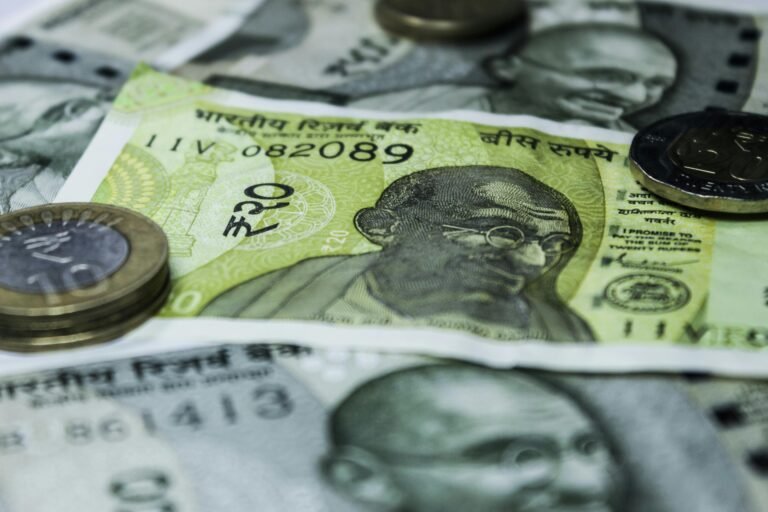The Fundamentals of Currency Valuation
Currency valuation is a complex process influenced by various economic factors and policies. At its core, the value of a currency is determined by the principles of supply and demand in the foreign exchange market. When demand for a currency increases, its value tends to rise, and conversely, when demand decreases, its value drops. Various elements can influence this demand, including a country’s economic performance, geopolitical stability, and market speculation.
Inflation rates are another critical factor in currency valuation. High inflation typically erodes the purchasing power of a currency, leading to a decrease in its value relative to others. Central banks aim to control inflation through monetary policy, adjusting interest rates accordingly to stabilize the currency’s value. For instance, a country exhibiting robust economic growth may experience higher inflation, prompting its central bank to increase interest rates. This can attract foreign investment, thereby increasing demand for its currency and boosting its value.
Interest rates play a significant role in the perception of a currency’s value. When a nation raises its interest rates, it often leads to an influx of foreign capital as investors seek higher returns. This can strengthen the currency as more market participants buy it to invest in that economy. Conversely, lower interest rates may have the opposite effect, decreasing the currency’s attractiveness in global markets.
Lastly, economic stability is paramount in determining currency value. Countries with stable governments and economies generally have stronger currencies, as they provide a predictable environment for investment. Global events such as political unrest, economic crises, or natural disasters can create volatility in the foreign exchange markets, leading to fluctuations in currency value. Understanding these foundational aspects helps clarify how governments and central banks define currency value in a constantly shifting global landscape.
Key Methods of Currency Valuation
The valuation of currency is a complex process influenced by numerous factors and strategies employed by governments and financial institutions. Among the primary methods of currency valuation are fixed exchange rate systems, floating exchange rates, and various indices that gauge a currency’s strength relative to others.
A fixed exchange rate system, often referred to as a pegged rate, involves setting a specific value for a currency in relation to another currency or a basket of currencies. This approach provides stability in trade and investment by minimizing exchange rate fluctuations. However, it requires substantial reserves of foreign currency to maintain the peg, which can be challenging during periods of economic volatility.
Conversely, floating exchange rates are determined by market forces, where the values fluctuate based on supply and demand dynamics. In this system, currency valuation is influenced by factors such as interest rates, inflation, and economic performance, leading to potentially more volatile exchange rates. Financial institutions closely monitor these fluctuations to gauge economic health and make informed investment decisions, as currency strength can greatly affect import and export dynamics.
Additionally, various economic indicators play a crucial role in currency valuation. Key indicators include GDP growth rates, unemployment statistics, and consumer price indices. These metrics provide insight into a country’s economic stability and performance, shaping investor sentiment and ultimately influencing currency demand.
Finally, geopolitical factors, such as political stability, international relations, and trade agreements, can significantly impact currency valuation. Changes in government policies or unexpected geopolitical events can lead to sudden shifts in currency strength, illustrating the interconnected nature of global finance. Understanding these methods provides a framework for appreciating how governments and financial institutions navigate the complex landscape of currency valuation.
The Top 5 Most Valuable Currencies in the World
Understanding the ranking of the most valuable currencies in the world is essential for anyone interested in international finance and global trade. The top five currencies that stand out for their strength and stability are the US Dollar, Euro, British Pound, Swiss Franc, and Japanese Yen. Each of these currencies plays a critical role in the global economy.
The US Dollar (USD) is often referred to as the world’s primary reserve currency, widely accepted in international transactions. Its value is backed by the economic performance of the United States, which boasts a diverse economy. The USD has maintained its status due to its liquidity and the trust placed in the US government and Federal Reserve, which implements policies to ensure economic stability.
Following the USD is the Euro (EUR), used by 19 of the 27 European Union countries. The Eurozone’s robust economy gives the Euro considerable weight in global markets. Its value derives from the collective strength of its member states, making it a reliable currency for international trade. The Euro is praised for its stability and is frequently used as a benchmark to compare other currencies.
The British Pound (GBP) is one of the oldest currencies still in use today and has a reputation for being a strong and stable currency. Its value is influenced by the UK’s economic indicators, monetary policy, and historical significance. The Pound is also notable for its widespread acceptance in global markets, particularly in finance and trade.
The Swiss Franc (CHF) is renowned for its safety, often sought after in times of market volatility. Switzerland’s strong economy and political neutrality contribute to the Franc’s stability. Investors commonly regard the Swiss Franc as a “safe-haven” currency during economic turmoil.
Lastly, the Japanese Yen (JPY) is notable for its significant role in the Asian economy and is widely traded in foreign exchange markets. The value of the Yen reflects Japan’s economic prowess and its importance as an exporter of goods. The currency’s stability aids in global trade, particularly with key partners in Asia and beyond.
The Future of Currency Valuation in a Global Economy
As the global economy continues to evolve, the landscape of currency valuation is experiencing significant transformation. Central to this evolution is the rise of digital currencies, which have begun to reshape traditional perceptions of value and exchange. With various governments and private entities exploring the implementation of central bank digital currencies (CBDCs), the implications for currency valuation and monetary policy are profound. These digital currencies can enhance transaction efficiency, reduce costs, and potentially increase governmental control over supply and demand dynamics, thus challenging traditional financial mechanisms.
Additionally, shifts in global power dynamics are influencing currency strength and stability. Emerging markets are becoming increasingly influential due to their growing economic weight, resulting in a reevaluation of currency valuations as these nations seek greater international competitiveness. Countries like India, Brazil, and Indonesia are progressively asserting their roles on the global stage, which may lead to a diversification in currency reserves held by nations traditionally reliant on the U.S. dollar and the euro.
The increasing interconnectedness of economies means that events in one region can swiftly impact others, creating volatility in currency markets. As such, governments will likely need to adapt their policies to respond to these changes. This could involve revising exchange rate mechanisms, influencing interest rates, and even implementing capital controls to stabilize their currencies during periods of heightened uncertainty.
Moreover, the role of geopolitical tensions cannot be overlooked as they often stir fluctuations in currency values. As nations navigate these complexities, it is essential for policymakers to remain vigilant and responsive. In conclusion, the future of currency valuation will be shaped by advancements in technology, evolving global power structures, and shifting economic paradigms, necessitating a proactive approach by governments worldwide.











+ There are no comments
Add yours